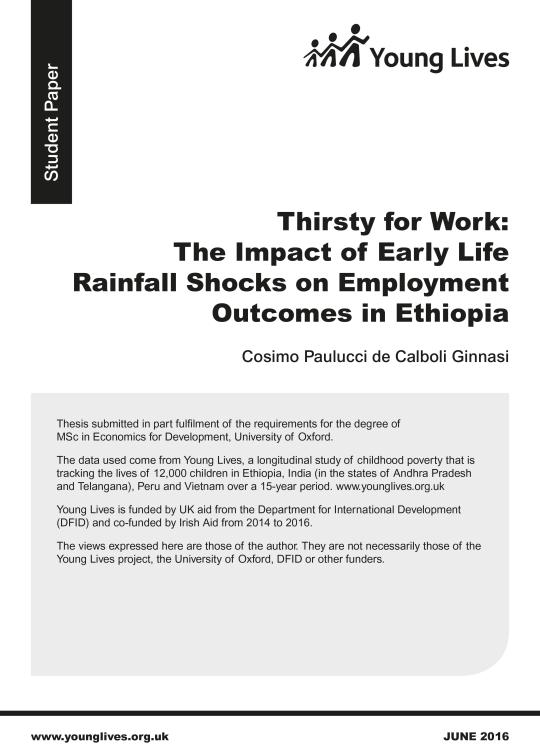
Breadcrumb
Thirsty for Work: The Impact of Early Life Rainfall Shocks on Employment Outcomes in Ethiopia
Human capital formation plays an important role in economic growth and development. However, developing economies are regularly subjected to a variety of natural disasters that can have prolonged adverse effects on this process. This paper estimates the effects of rainfall shocks exposure during childhood on both educational attainment and employment outcomes in Ethiopia. Using a panel dataset from Ethiopia, the author explore two separate questions – how rainfall shocks impact human capital investment in childhood (measured by education) and how these same shocks affect eventual labour market outcomes. The author finds that positive rainfall shocks at different life stages all result in greater educational attainment.
Additionally, the author finds that increased human capital accumulation reduces the probability that an individual is involved in work in late adolescence, but has no discernible effect on the probability of selfemployment. This points towards a premium being placed on greater human capital in the labour market. The author also verified whether other factors associated with varied rainfall might be driving the results and find that the primary results remain robust. Finally, the author finds evidence of non-linear effects when controlling for heterogeneity in shock severity, indicating the need for additional research to be conducted. Based on a model of human capital accumulation, these results suggest that parents in Ethiopia prefer to reinforce the effect of a shock, implying that there is low substitutability between investments across periods. This points to the need to ensure that policies are designed so as to insulate vulnerable communities from the effects of shocks and leave the process of human capital formation unfettered.

